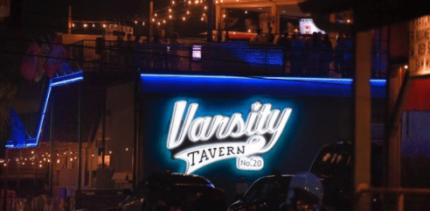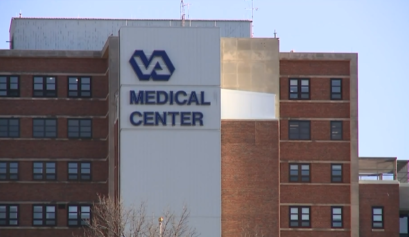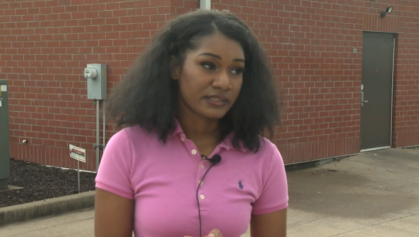Last week, the Supreme Court heard arguments in Masterpiece Cakeshop v. Colorado Civil Rights Commission. Masterpiece Cakeshop was sued by a gay couple after refusing to bake a cake for their wedding. A ruling for the bakery could have a significant impact on legal race-based discrimination in America.
Colorado, like most states, has a law that prohibits discrimination on the basis of race, gender, sexual orientation and other characteristics. The bakery is asking the Supreme Court to create an exception to the law. The bakery owner argues that because homosexuality is against his religion, a law that forces them to serve all members of the community violates their First Amendment right to religious freedom.
Though some in the Black community may not immediately see how a case involving LGBT plaintiffs impacts them, any change to public accommodation laws could cause grave and immediate harm to the Black community. Public accommodation laws were passed after thousands of Black people marched and fought to end Jim Crow segregation at lunch counters, swimming pools, and other places. These laws make it illegal for hotels, restaurants, and other businesses to refuse service to African-Americans.
If the Supreme Court rules that a business does not have to follow public accommodation laws if they conflict with the owners’ religion, the Court will create a loophole that could re-open to the door to legally sanctioned racial discrimination.
Grabbing a coffee before work. Going to the local sandwich shop for lunch. Stopping at the grocery store on the way home. Each person supports a variety of businesses each day. While seeing people of all races patronize businesses is a common sight today, this was not always the case.
Research indicates that while the population of free African-Americans was small prior to Emancipation, their small numbers caused great fear in the white populations. As the free Black population grew in the early 1800s, Northern states such as Ohio and Massachusetts passed laws restricting public accommodations to white patrons.
Shortly after the Civil War, Congress passed the Civil Rights Act of 1875. The first federal public accommodations law stated that access to public accommodations could not be restricted on the basis of race, color, or previous condition of servitude. However, two Supreme Court rulings rendered the act ineffective less than twenty years after its passage. In 1883, the Supreme Court held that Congress had no authority to pass laws targeting private businesses that operated solely within the confines of one state. In 1896, Plessy v. Ferguson declared that the newly ratified Fourteenth Amendment’s requirement of “equal protection” could be met by providing separate but equal facilities. This one-two punch ushered in the Jim Crow era.
After Plessy, accommodations of all sorts remained segregated for nearly 60 years. But in 1954 the tide turned. The Supreme Court’s landmark decision in Brown v. Board of Education overturned Plessy by ruling that separate but equal schools were unconstitutional. In the next year, two events — the brutal lynching of Chicago teen Emmett Till in Mississippi and the Montgomery Bus Boycott initiated by the actions of Rosa Parks — sparked the modern civil rights movement.
The movement that began with a bus boycott soon made public accommodations a key focus. In 1960, four students at North Carolina A&T staged sit-ins at the Greensboro Woolworth’s to protest its segregation policies. In his famous “I Have a Dream” speech during 1963’s March on Washington, Dr. Martin Luther King Jr. stated, “We can never be satisfied, as long as our bodies, heavy with the fatigue of travel, cannot gain lodging in the motels of the highways and the hotels of the cities. … We can never be satisfied as long as our children are stripped of their selfhood and robbed of their dignity by signs stating ‘For Whites Only’.”
The Movement’s efforts were rewarded with the passage of the Civil Rights Act of 1964. Unlike the Civil Rights Act of 1875, the 1964 act focused on Congress’ authority to regulate interstate commerce. Because nearly every business has customers or supplies from other states, Congress used this power to compel businesses to serve all comers regardless of race, color, or sex. At present, all fifty states have public accommodations laws that prohibit discrimination on the basis of race.
As the Supreme Court prepares to decide a case that could change public accommodations law, African-Americans must be aware of the changes that could occur. Atiba Ellis, Professor of Law at West Virginia University College of Law and member of West Virginia Advisory Commission for the United States Civil Rights Commission emphasized that public accommodations are an important part of our legal struggle. “Public accommodations, from a civil rights lawyer’s point of view, are the protections that get taken for granted. After the Civil Rights Act of 1964 passed, society realized that non-discrimination ought to be the norm, and everybody complied.” Professor Ellis noted that while discrimination still occurs in public spaces, the idea that public accommodations should be restricted on the basis of race has been largely rejected.
When asked how the Masterpiece Cakeshop case could impact public accommodations, Professor Ellis first explained how the First Amendment protects freedom of religion. He stated, “The First Amendment protects the people from government control of their religious expression. It allows every individual to decide how they wish to express their religious belief. It also says you don’t have to have a religion at all.”
Though this is a broad right, he said that there is an important caveat. The Supreme Court has held that where there is a neutral law that applies to everyone without singling out any particular religion, that law controls, even if following that law might restrict religion. So, Professor Ellis noted that if a religion demanded human sacrifice, that law might conflict with general homicide law, but the court would not find a violation of the right to freedom of religion because the law against homicide applies equally to all.
When asked how creating a religious exemption would affect existing public accommodations laws, Professor Ellis explained the effects could be wide-reaching. He said, “[The owner of] Masterpiece Cakeshop is arguing that the government, by forcing him to sell cakes to a gay couple, is forcing him to sell art that cuts against his deeply held belief that same-sex marriage is wrong. As I view it, being able to make that claim would allow any adherent to argue that servicing ‘that sort of person’ would allow them to take a pass on servicing any group that their religion teaches them they don’t like. The Bible has language that can be used to endorse racial segregation, the subjugation of women and other issues beyond homosexuality. So, if a person’s religion teaches them not to like Black people, they can discriminate against Black people at their stores, movie theaters, or restaurants and when they are caught, they can simply say, ‘It’s my religion.”
He explained further, “If we allow religious exemptions, then the validity of public accommodations will be in the hand of the individual business owner, not in the hands of the law. If that happened, public accommodations laws would be unenforceable. Religion is inherently personal and subjective.”
Notably, there is a precedent for using Christianity to justify racial discrimination. An essay by Dr. Karl Giberson, professor of religion at Stonehill College, boldly states that “white Christians once appealed to the Bible to justify owning, whipping, and lynching Black people.” Dr. Giberson’s essay explains that while many Christian philosophers in Europe in the 1700s struggling to explain how many races came from one couple developed benign explanations, a number of them concluded that Africans simply were not descended of Adam and therefore, were not human. He notes that other Christians claimed the African’s dark skin proved they were the descendants of Cain, the cursed offspring of Adam and Eve. The doctor opined that “Such explanations justified mistreatment of Africans: perhaps they are not even human, or maybe they are a vast tribe that God has “marked” for slavery; perhaps they are deteriorated into a childlike state and need owners to look after them. Actual equality for the African was, of course, unthinkable for Christians convinced that God had ordained the racial distinctions that separated the human tribes.”
The use of Christianity to justify the separation of the races did not end in the 1800s. Dr. Giberson’s essay notes that as recently as 1998, Bob Jones University, a purportedly Christian institution, denied admission to a white student when he revealed that his wife was African-American. Earlier this year, the Southern Baptist Convention initially refused to adopt a resolution condemning white supremacy. The fact that the Southern Poverty Law Center has a separate listing for Christian-identified organizations in its directory of hate groups underscores the point that religion is often used to justify racism.


